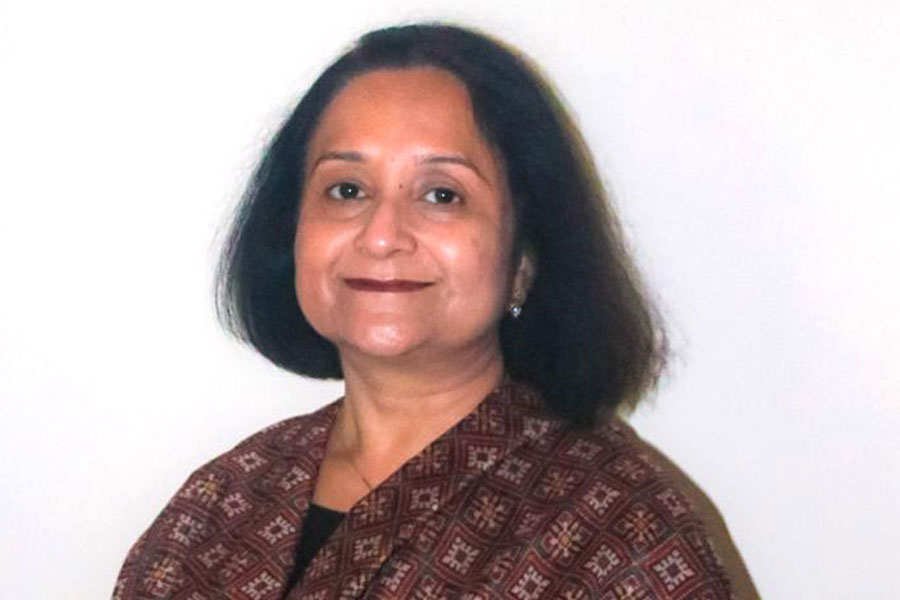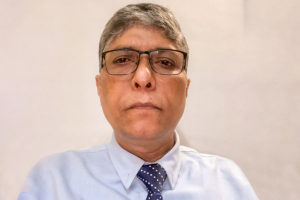Globally, there is a focus on local jobs and upskilling
Dr Arpita Mukherjee, ICRIER, believes that India should work closely with other countries on how to support Indian immigrants in those markets, address health care and other issues. At the same time, it should upskill its workforce for jobs in futuristic areas like Fourth Industrial Revolution and automation.

IBT: What are the key markets for Indian immigrants in terms of employment? What kinds of jobs do they offer to Indian workers?
Dr. Arpita Mukherjee: Workers can be high-skilled, skilled, semi-skilled or unskilled. Indians migrate to a number of countries, depending on their skill levels and the supply-demand gaps in the destination markets. They do a wide range of jobs across different skill levels, depending on the destination markets needs and requirements.
The nature of migration has also changed overtime. For example, while many low-skilled immigrants went to the UK and Canada in the 1960s, at present, it is mostly high-skilled migration. Similarly, a number of low-skilled workers went to the oil-rich countries in the Middle East since late 1970s, to meet their labour shortages in areas like construction. At the same time, there has been skilled migration like nurses to Middle East.
There are many semi-skilled and skilled workers in the ASEAN region along with high-skilled professionals. Several Indians across different occupations are in Africa.
Many Indian doctors, nurses and care workers are contributing extensive to the health sectors of the UK, USA, Australia & Middle East to name a few. More recently, English teachers and yoga teachers are going to countries like China and Japan.
Science, economics, technology, finance and academics are some of the areas where Indians have excelled in foreign countries. In natural resource extraction and construction, they have significant contributions in Africa and Middle East. From agricultural workers to scientists, Indians are present across a wide range of jobs.
IBT: What are the conditions that overseas Indian workers are facing due to COVID-19? What other challenges are Indian emigrants facing abroad (e.g. hostile visa policies)?
Dr. Arpita Mukherjee: Across all countries, immigrants are facing challenges due to COVID-19. First, many immigrants have lost jobs due to economic slowdown. Second, there has been travel ban. The spread of the COVID-19 in India is not under control and at present, we are among the high-risk countries. Due to this, workers are scared to come back to India and, if they have come back, they face entry restrictions when they want to go back.
Third, visa renewal, work permits, etc., is an issue; as has been seen in countries like the US. Many government offices and embassies are closed or not operating at full strength, so there are delays and uncertainties. Apart from these, countries are going through economic slowdown and are implementing protectionist measures and sporadic anti-immigrant policies. Fourth, in some countries Indian workers living under poor conditions are more susceptible to COVID-19.
Fifth, the workers may not have proper health insurance, or the country may not have adequate healthcare infrastructure to manage the growing incidence of the disease. Sixth, India itself had imposed travel bans and certain restrictions in the past and hence it is difficult to challenge similar measures taken by other countries.
IBT: Why are a significant number of Indian immigrants returning to the country? What repercussions will it have for Indian economy?
Dr. Arpita Mukherjee: Immigrants are returning due to several reasons including loss of employment, uncertainty about getting future employment, destination markets are not willing to support the healthcare costs, recession in destination market, they can now work remotely, families in India are worried about their well-being, protectionism in destination markets, etc.
It is difficult to talk about the impact on the Indian economy without knowing the exact number of immigrants that have returned and the reasons for the same and how long they plan to stay back.
Having said that, the Indian economy is going through a slowdown and unemployment. India is dependent on remittances and if that reduces, which it will, there is a negative impact. Creating jobs in India is also difficult unless India can control the spread of the disease.
Certain states like Kerala, which has been able to reduce the spread of the disease, will be adversely affected if migrants from Gulf countries come back. It has already received around 19% of the total repatriation as per some of the studies.
World Bank estimated a decline in global remittances by around 20%, which may be more if the economic slowdown continues.
IBT: How should these people be incorporated into the Indian job market? Does India have the kind of blue collar & white-collar jobs to accommodate them?
Dr. Arpita Mukherjee: As of now, there is huge unemployment in India, which is likely to continue till the end of this financial year. Government data shows slowdown so there is a pressure on the job market. Migrant workers are mostly in skilled or unskilled category from regions like the Gulf, but several skilled and high skilled professionals may also return. At present, India is going through one of its worst economic slowdowns and, therefore, absorbing the immigrants in the current economic scenario is a challenge.
Within the skilled category, some migrants in sectors like construction may be better skilled than the domestic workforce and may be able to get jobs. They may even replace domestic workforce and the unemployment can be more for domestic workforce than migrants.
Migrants may come back and invest in businesses/set up their own enterprises. Return migration can also benefit an economy and, therefore, the economy may not always have to create jobs for them. Migrants can also help the economy and region to grow through investment in businesses.
Migrants may only come back for a short duration and have plans to return or migrate to other destinations. Migration is a complex process. In a pandemic situation, there is need for deep research before one can draw broad conclusions. The impact on the local job market will depend on various factors like how long the pandemic is going to stay, what kind of jobs are likely to be created in India, what is the extend of slowdown in India, whether the migrants want to stay back or return or migrate to other countries, etc.
IBT: Which are the most popular areas where these returnees can find employment?
Dr. Arpita Mukherjee: The areas in which the returnees can be employed depend on their skills. For example, if they are in the healthcare sector, there is a shortage and demand in India, However, if they had worked in tourism or retail sector, it would take some time for these sectors to grow in India.
It is important to first understand what percentage of immigrants have come back to stay in India and what percentage have come back with an objective of going back to their destination markets once the situation improves.
IBT: What should be done to arrest the fall in the remittances sent by Indian workers settled in foreign countries?
Dr. Arpita Mukherjee: There is need for policymakers to engage proactively with the destination markets and provide support to migrants in their destination countries. On its own, India should avoid protectionist policies. It is important to examine thoroughly the reasons for return migration and reduction in remittances flow and have country specific strategies.
India should work closely with other countries on how to support Indian immigrants in those markets, address health care and other issues. India also needs to address the spread of the pandemic as has been done by some of the ASEAN countries. It is important that India is not considered as a high-risk country.
Globally in many of the destination markets there is a focus on jobs for locals and on upskilling of the economy. Therefore, India too needs to focus on upskilling of its workforce to cater to such requirements. We need to have more skilled workforce in areas such as automobile, food processing, textiles and apparels, and construction. We need to make our workforce ready for the fourth industrial revolution and automation. This will enable them to cater to the new demand on importing countries.
Dr Arpita Mukherjee is a Professor at ICRIER. She has several years of experience in policy-oriented research, working closely with the Government of India and policymakers in the EU, US, ASEAN and in East Asian countries. She has conducted studies for international organizations such as ADB, ADBI, ASEAN Secretariat, FCO (UK), Italian Trade Commission, Konrad-Adenauer Stiftung (KAS), OECD, Taipei Economic and Cultural Centre (TECC), UNCTAD and the WTO and Indian industry associations such as NASSCOM, FICCI, IBA, IDSA and EICI. Her research is a key contributor to India’s negotiating strategies in the WTO and bilateral agreements. The views expressed here are her own. Usual disclaimers apply.













Leave a comment